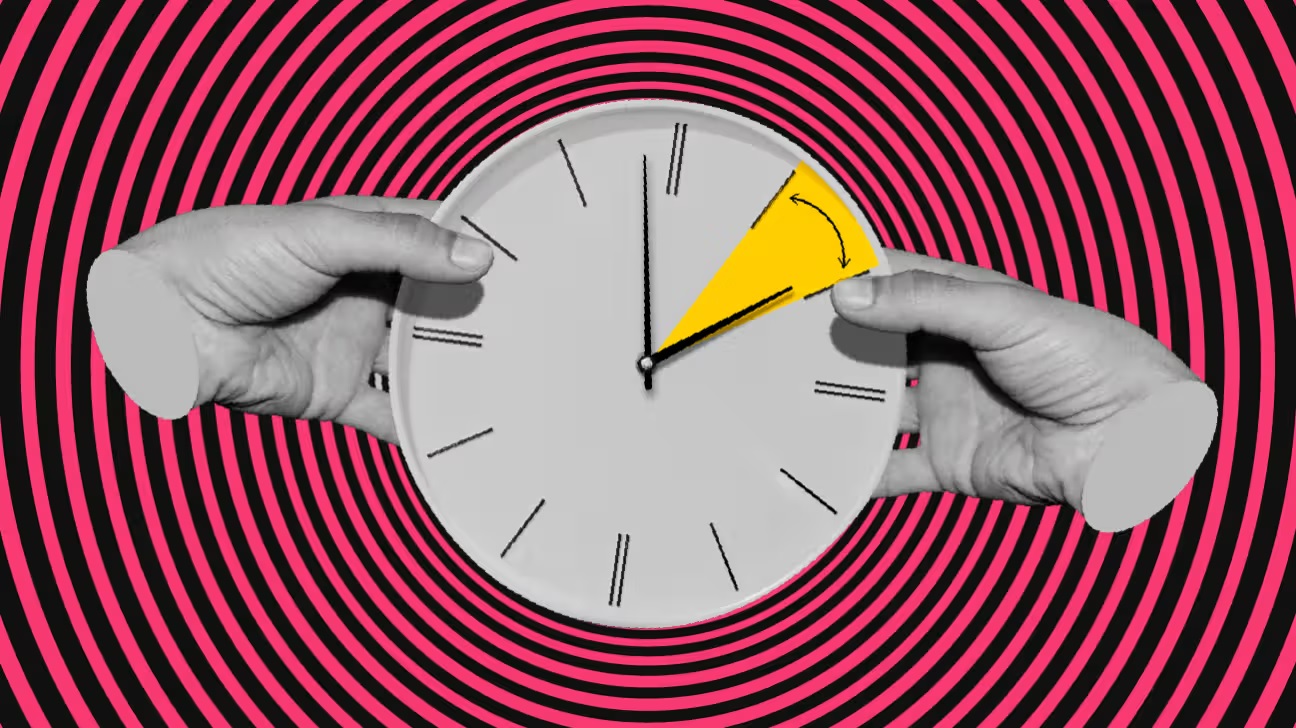
Time is a fascinating concept. We rely on it to structure our lives, measure our achievements, and navigate our daily routines. However, our perception of time is not always as reliable as we might think. There are instances when time seems to fly by, and others when it feels like it’s standing still. It is in these moments that we become acutely aware of the fluidity and subjectivity of time. In this article, we will explore 18 mind-bending facts that will challenge and reshape your perception of time. Get ready to have your mind blown as we delve into the mysteries of temporal perception and uncover the surprising ways in which our brains interpret the passage of time. Buckle up, because things are about to get a little trippy!
Key Takeaways:
- Time perception is influenced by emotions, routines, and external factors like technology, making it highly subjective and varying from person to person.
- Our experience of time is not straightforward; it can be influenced by anticipation, music, sleep, and even social media, creating a fluid and dynamic perception of time.
Time flies when you’re having fun, but why?
We’ve all heard the saying “time flies when you’re having fun,” and it turns out there’s some scientific truth to it. When we’re engaged in enjoyable activities, our brains release more dopamine, a neurotransmitter associated with pleasure. This flood of dopamine can alter our perception of time and make it seem like hours have passed in what felt like minutes.
The “Oddball Effect”
Have you ever noticed that when you’re waiting for something, time seems to slow down? This phenomenon, known as the “Oddball Effect,” occurs when we focus on an event or stimulus that stands out from our usual experiences. Our brains pay extra attention to these unique occurrences, resulting in a distorted perception of time.
Time perception differs from person to person
Have you ever been in a situation where someone tells you an event felt like forever, while for you it passed quickly? Our perception of time is subjective and can vary greatly from person to person. Factors such as age, attention span, and individual psychology play a significant role in how we experience the passing of time.
The Zeigarnik Effect
Ever wonder why unfinished tasks seem to take up more mental space than completed ones? The Zeigarnik Effect explains how unfinished or interrupted tasks tend to occupy our thoughts more than completed ones. This cognitive effect influences our perception of time, making it feel longer due to the lingering thoughts about the unfinished task.
Time perception is influenced by emotions
Emotions can warp our perception of time. When we experience intense emotions such as fear or excitement, our brains’ amygdala becomes more active. This heightened emotional state can lead to time feeling like it’s moving at a different speed, either slowing down or speeding up.
The “Holiday Paradox”
Have you noticed how vacations always seem to fly by? This phenomenon, known as the “Holiday Paradox,” occurs because our brain doesn’t store new experiences in great detail. When we’re on vacation, we’re often engaged in novel and exciting activities, and because our brain processes new information differently, the memories formed during this time are less detailed. As a result, it feels like the time flew by when we think back on the vacation.
The power of anticipation
Looking forward to an event can make time seem to slow down. The build-up of anticipation, whether it’s for a special occasion or a long-awaited trip, can make each passing day feel longer as we eagerly await the momentous event.
The influence of routine
Our brains are wired to create routines to conserve mental effort. When we engage in repetitive activities that follow a familiar pattern, our brains switch to a more autopilot mode, resulting in a decreased perception of time. This is why time seems to move faster as we get older – our routines become more established and require less conscious thought.
Time perception and age
Your perception of time may change as you grow older. Research suggests that as we age, our internal clocks speed up, making time seem to pass faster. This could be due to the fact that older adults have more experiences and memories, which can create a sensation of time accelerating.
The influence of technology
In today’s digital age, technology plays a significant role in shaping our perception of time. Constant connectivity and access to instant information can make time seem to pass quicker as we are constantly bombarded with stimuli and distractions.
The “Now-or-Never Fallacy”
We often underestimate the time it takes to complete a task or reach a particular goal. This cognitive bias, known as the “Now-or-Never Fallacy,” can lead us to procrastinate or delay important tasks because we falsely believe we will have more time in the future.
The influence of music
Music has the power to alter our perception of time. Upbeat, fast-paced music can make time feel like it’s flying by, while slower, more relaxing music can make it seem to slow down. This is why creating the right playlist can make a long journey feel shorter.
Sleep affects time perception
Your quality of sleep can impact your perception of time. When we are sleep-deprived, our ability to accurately gauge the passage of time diminishes, making it feel like time is either dragging on or passing too quickly.
Time seems to pass faster as we age
As we get older, our perception of time changes. A year can feel shorter than it did when we were children. This could be due to the fact that as we age, each year represents a smaller portion of our overall life, leading to a sense of time accelerating.
The influence of multitasking
When we engage in multitasking, our attention is divided, and our brain has to rapidly shift between different tasks. This can create a distorted perception of time, making it feel like it is moving at a faster pace.
The impact of novelty
New and exciting experiences can make time feel slower because our brains are actively engaged in processing and storing information. This is why time seems to stretch during memorable events.
The illusion of time on social media
Spending hours scrolling through social media can create a distorted perception of time. The constant stream of content can make time feel like it’s slipping away faster than we realize.
The relativity of time
Einstein’s theory of relativity states that time is not constant and can be influenced by factors such as gravity and speed. This concept challenges our intuitive perception of time and shows that it is a complex and dynamic phenomenon.
Conclusion
In conclusion, our perception of time can be quite complex and easily manipulated. The 18 facts shared in this article have certainly challenged and potentially changed the way we understand time. From the relativity of time to the influence of our emotions, these facts remind us that time is not as straightforward as it seems. Our daily experiences, surroundings, and even physiological factors can all impact how we perceive the passing of time. So, the next time you feel like time is flying by or dragging on, remember that your perception of time is not a fixed concept, but rather a fascinating phenomenon that can be influenced by various factors.
FAQs
1. Why does time seem to pass faster as we grow older?
As we age, our brains process information more efficiently, leading to a perception of time passing faster. Additionally, when we are younger, we experience many new and novel events, which create lasting memories. As we get older, the repetition of routine tasks and the lack of new experiences make time seem to fly by.
2. Can time really slow down in high-stress situations?
Yes, in a high-stress situation, the brain’s perception of time can alter due to the intense focus and heightened senses. The brain takes in more information from the environment, creating a time dilation effect where everything seems to slow down.
3. What role does culture play in our perception of time?
Culture plays a significant role in shaping our perception of time. Some cultures place more importance on punctuality and adherence to strict schedules, while others have a more relaxed approach. These cultural values and norms can influence how individuals perceive and prioritize time.
4. Can time perception be improved?
While the perception of time is subjective, some strategies can help improve our awareness and management of time. These include practicing mindfulness, setting goals and priorities, and engaging in activities that challenge our perception of time, such as learning a new skill or traveling to unfamiliar places.
5. Why do some moments feel like they last forever?
Moments that feel like they last forever are typically associated with highly emotional or intense experiences. When our brains are fully engaged and focused, they create vivid and detailed memories, making it feel like time is stretched out.
Was this page helpful?
Our commitment to delivering trustworthy and engaging content is at the heart of what we do. Each fact on our site is contributed by real users like you, bringing a wealth of diverse insights and information. To ensure the highest standards of accuracy and reliability, our dedicated editors meticulously review each submission. This process guarantees that the facts we share are not only fascinating but also credible. Trust in our commitment to quality and authenticity as you explore and learn with us.


